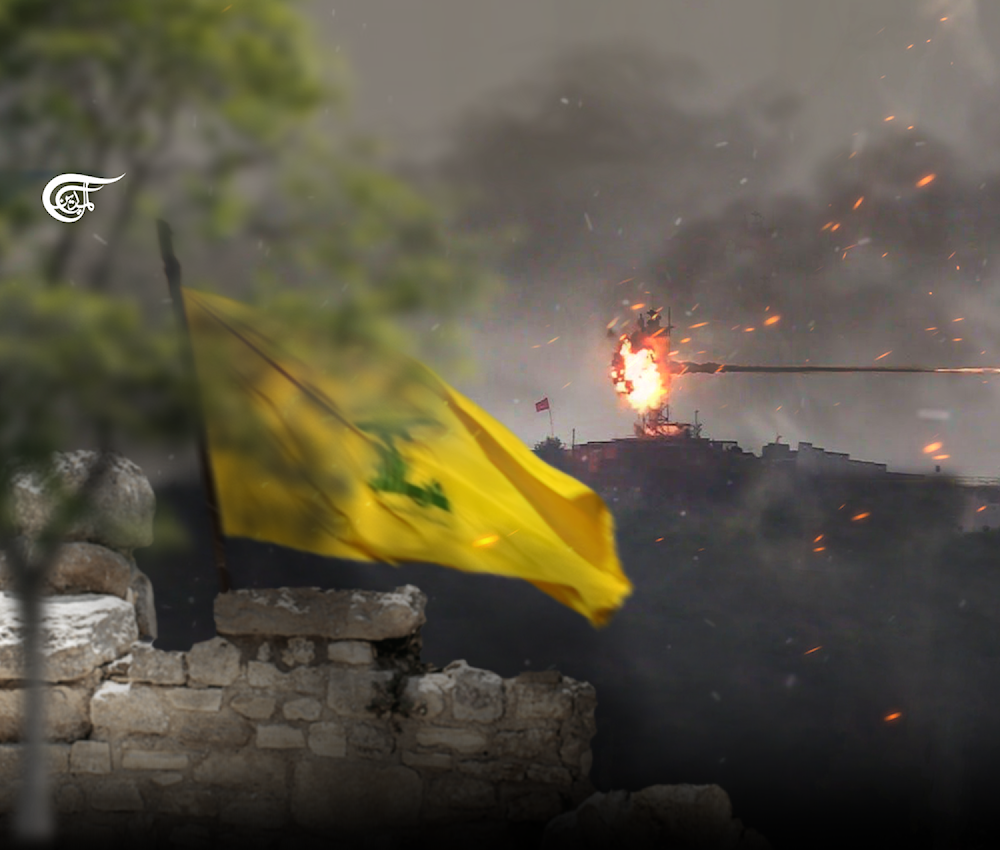Playing with fire
Hezbollah’s interests and Lebanon’s sovereignty will undoubtedly play a major role in determining any credible balance of power that keeps stability within reach.
-

A closer look at statistics makes the contrast in military and strategic competence even more humiliating for "Israel" (Illustrated by Hadi Dbouk to Al Mayadeen)
This is just a glimpse of what occupation forces may endure in the long run.
In the wake of "Israel’s" unwarranted strikes in Southern Lebanon, Hezbollah launched a dozen operations against occupation forces, effectively concretizing the costs of undue Israeli aggression. The configuration of the response has been telling: two Burkan rockets were fired at Israel’s "Birket Risha" military site while another identified a critical IOF coordination point as its target. The sheer scale and pace of Hezbollah’s retaliation reflects its in-depth knowledge of "Israel’s" weakest military and intelligence points, compelling some strategists to warn "Israel" that its escalation with Hezbollah is a one way ticket to Mutually Assured Destruction (MAD).
Hezbollah’s interests and Lebanon’s sovereignty will undoubtedly play a major role in determining any credible balance of power that keeps stability within reach. But sustained Israeli crimes on Lebanon’s soil will be met with a zero-compromise attitude, a continuation of years of hard-set resolve against oppression. The occupation will indeed be forced to pay for civilian deaths in full, as warned by the resistance chief well ahead of the devastating operations against "Israel".
From the "Kfar Yuval" settlement to the 769 Eastern Brigade headquarters, the range of target sites struck speaks volumes of occupation forces’ fragility on ground. After all, fears of a full-scale war between “Israel” and Lebanon continue to unsettle and haunt occupation ranks considerably. Spectacular failures to pre-empt missiles also lay to rest so-called occupation “defenses.” Moreover, this is a battle-hardened opposition that has prevailed against “Israel” in 2006, and forced the occupation to present high rhetoric on war but little to show for combative strength.
The pressure to ward off any realistic prospect of Israeli contention with Hezbollah is real. This makes protracted Israeli aggression with Lebanon impossible to sustain in the long-run. That message became loud and clear when Hezbollah fighters penetrated Israeli military sites within hours, establishing its retaliation as firm defense of Lebanese lands and a fearless Palestinian resistance. “The response to the [Israeli] massacre should be continuing resistance work at the front and escalating resistance work at the front,” said Hezbollah chief Sayyed Hassan Nasrallah before the operations. “Our women and our children who were killed in these days, the enemy will pay the price of spilling their blood in blood,” he categorically warned.
Given that the occupation army shows no signs of relenting its undue aggression, Hezbollah’s responses are likely to be marked by high sophistication and deeper infiltration, including through strategic drones. IOF’s lack of preparedness is evident in the criticism from Israeli media, which raised questions about the effectiveness of so-called interception systems that the IOF prematurely prides itself on.
Hezbollah is known to pass through all of "Israel’s" anti-air and detection mechanisms, putting the gravity of "Israel’s" opposition into perspective. "Israel’s" brutal airstrike killing six year-old Amal al-Dorr and 40-year-old Khadija Suleiman this week has pushed the murderous regime on the verge of even more formidable retaliation from Lebanon. It is time to end the illusion that "Israel" can bomb, strike and assault innocent civilians upon will, and justify a status-quo of bloodshed without any punishment in sight.
"Israel’s" greatest weakness in provoking the Lebanese resistance is the knowledge and tactical prowess of the latter, accumulated over decades. For instance, it is a hard fact that Hezbollah is capable of launching thousands of missiles into "Israel", pushing insecure occupation ranks to setup a so-called ‘security belt’ in the occupied North. But underneath that security façade is tacit recognition that "Israel" simply cannot afford a broader war or confrontation with Hezbollah.
Look no further than the admission from its prime sponsor, Washington, that such a scenario would completely backfire on the occupation. Thus, a condemnable Israeli killing spree against innocent civilians in Lebanon means preparing more ground for that destructive scenario. IOF has no response to the targeted attack capabilities of Hezbollah, and wants the world to focus its attention on legitimate retaliation rather than "Israel’s" history of military provocation and settlements. Both are chief to any sign of escalation.
A closer look at statistics makes the contrast in military and strategic competence even more humiliating for "Israel". Consider the fact that between October 8 last year and February 15, 2024, Hezbollah conducted 1,038 operations against the Israeli occupation, underlining its ability to maintain unequivocal support and solidarity with the Palestinian resistance. "Israel’s" Gaza genocide has shown the world that all meaningful forms of resistance are geared towards targeting Israeli oppression as a whole, and its push for settler-colonial control.
Hezbollah’s multiple operations on sensitive occupation sites demonstrate added power and motivation to counter Israeli belligerence and aggression against Lebanon’s villages. In light of the tactical weaknesses exposed by Hezbollah’s retaliatory strikes, a fundamental reality is clear: the more massacres "Israel" attempts, the greater its risk of capitulation at the hands of a battle-hardened and strategically cohesive Lebanese resistance.
All told, "Israel" made a grave mistake by attempting to test Hezbollah’s warnings on retaliation. Further escalation would warrant an even firmer hand, pointing to a profound spell of internal chaos for occupation ranks.

 Hannan Hussain
Hannan Hussain
 5 Min Read
5 Min Read











